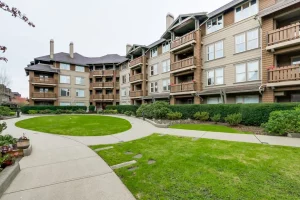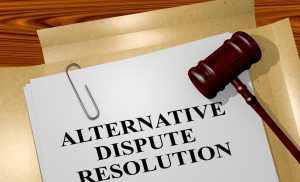Everybody corporate requires certain funding for the everyday functioning and upkeep of the building. The unpaid levies of a body corporate affect these functions.
In terms of section 3(1) of the Sectional Titles Schemes Management Act 8 of 2011 (STSM Act”) the body corporate must establish and maintain an administrative and reserve fund and require owners to make contributions to such funds that are reasonably necessary and sufficient to cover the estimated annual operating costs and future maintenance and repair of common property. These contributions are essential for the effective administrative, financial and physical management of any scheme.
The effect of unpaid levies on the body corporate’s bank accounts
It is imperative that bodies corporate initiate unpaid levies collection procedures as soon as an owner’s levy account goes into arrears. The short reason for this is that there will be a shortfall in the body corporate’s bank accounts to cover the annual operating costs and future maintenance and repair of common property.
A scheme that has not collected all the contributions due will not be in a position to pay all the administrative, operating, and maintenance expenses it incurs. This will mean that the body corporate will not be able to cover all of its expenses such as municipal rates and taxes and charges for electricity, gas, water, fuel, sanitary and other services; premiums for building insurance; managing agent’s fees; costs for security; and any regular repair or maintenance or larger maintenance projects.
This will obviously have a detrimental effect on the investment value of each unit and the scheme as a whole. Potential purchasers may not be interested in purchasing units in a scheme that has a financial shortfall, and that is unable to meet their expenses. Unfortunately, the whole issue can have a snowball effect. As each month passes the arrear levy contributions will increase (and the interest lost thereon) and the inability to cover the operating and maintenance expenses will escalate. The paying members will be forced to subsidize the delinquent member(s).
The effect of unpaid levies on paying members
Ultimately the paying members become responsible for the non-paying members such that the operating and maintenance expenses will continue to be covered. To add salt to the wound the paying owners will then also be responsible for funding any legal expenses in chasing the unpaid levies.
In circumstances where there are unpaid levies and a shortfall in the budget, the trustees will be forced to raise special levies to fund the scheme’s expenses and initiate levy collection procedures. In terms of section 3(3) of the STSM Act and prescribed management rule (“PMR”) 21(3)(a) the trustees may from time to time raise special contributions for expenses that are necessary but were not budgeted for in the estimated expenditure approved at the last AGM.
Advice for bodies corporate
I recommend that bodies corporate include the potential cost of following levy collection procedures as a line item in their budget. The amount set aside will depend on the scheme’s (gu)estimation based on historical debtors and provision for future non-paying members. The amount raised would need to include:
- The unpaid levies contribution amount for a few months (for as long as the levy collection procedure takes).
- Lost interest.
- The possible managing agent fee or cost of sending the final notice in terms of PMR 25(2).
- The attorney’s fees.
- The cost of initiating legal procedures (application fee at the community schemes ombud service or the court costs).
In this way, there will be no need for the paying members to pay more than what was originally budgeted and allocated as their share toward the contributions. There will be no need to raise special levies to pay for attorney fees and court costs. The scheme would be in a position to continue to fund all of its operating costs and continue with all maintenance projects and fund the levy collection procedures. This will mean that paying members will not be blindsided with unbudgeted and unexpected fees. The amount budgeted for the event of unpaid contributions can be revisited every year. In years where the budgeted line item was not utilized, the amount can be reduced in the following year proportionately to the newly approved budget or increased as necessary.
Conclusion
It is imperative that bodies corporate follow these procedures as soon as an owner’s levy account goes into arrears. The faster the unpaid levies collection procedure is initiated, the better for the body corporate as a whole. Some things the trustees could do to be in the best position when a members account goes into arrears are:
- The trustees (or the scheme’s managing agent) should have templates prepared for the final notice for arrear contributions which should be sent out on the day that the contribution is officially in arrears.
- The follow-up levy collection procedures should be initiated timeously too.
- The trustees should familiarize themselves with their options in regard to levy collection procedures, and know when which procedure is most suitable for the applicable set of circumstances in regard to the member in arrears.
- The trustees should also have an established relationship with a reputable levy collection attorney.
If the body corporate has a fail-safe strategy in place and consistently follows through with the strategy, the members of the body corporate will know that they cannot get away with not paying their contributions, and may be less inclined to do so.
Watch our webinar where Willie Roos of Stratafin and Zerlinda van der Merwe of TVDM Consultants talk about the difficulties in the levy collection process and the various options for the trustees.
Written by Dr. Carryn Melissa Durham of Stratafin
BA (Law) LLB LLM LLD
Specialist Property Attorney













